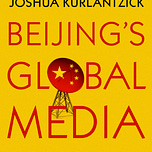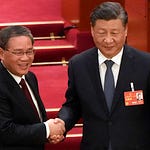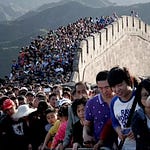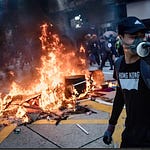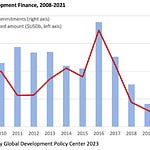Hello and welcome back to What China Wants.
Today Stewart and Sam are talking about Beijing’s international media reach with Josh Kurlantzick from the Council on Foreign Relations. Twenty, even ten years ago, it could be said that China was underweight in terms of its press coverage in the West. Today, this has changed, in part because of active efforts by the Chinese Communist Party to dominate the media. The question is, is it working?
Josh joined us to talk about his new book, Beijing's Global Media Offensive: China's Uneven Campaign To Influence Asia and the World. Here are some highlights of our discussion:
China’s media influence is split into two aspects: soft power, and sharp power.
The country’s soft power was at its height in the 2008 Olympics but it has taken a dive recently as the traditional sources of soft power (like artists) are in exile or restrained.
Sharp power is more covert and more nefarious, and Josh describes it in detail.
China spends huge amounts of money pushing its news stories into the international media, spun to suit the CCP’s line, but with limited success.
The CCP also conducts a lot of disinformation campaigns, as with Covid and Taiwan. They are not, however, often that successful.
Democracies need to ensure their citizens are properly educated in digital safety to better recognise disinformation and to bring in measures to stop foreign governments from internal media influence, for example over elections.
You can also listen to the podcast on Apple, Amazon, or Spotify.
As always please do share, comment, and subscribe. We’ll be back soon with more What China Wants.
Many thanks for listening.
***
Here is the transcript:
Sam Olsen: Hello and welcome back to What China Wants with me, Sam Olsen, and Stewart Paterson of course. So the Evenstar Institute, which What China Wants is a part of, is dedicated to measuring and understanding national influence, particularly that of China. And an important part of national influence comes from a country's ability to control and dominate the media. We are lucky today to be joined by Josh Kurlantzick, the author of a really good new book on China's international media activities, 'Beijing's Global Media Offensive: China's uneven campaign to influence Asia and the world'. Josh is a senior fellow for Southeast Asia at the Council on Foreign Relations, an American think tank. Welcome, Josh, it is really good to have you on the podcast.
Josh Kurlantzick: Thanks so much for having me.
SO: Now, I really liked your book, it was incredibly interesting. One of the most thought-provoking parts of it was that you split media influence into two different camps, 'soft power' and 'sharp power'. Can you explain the difference?
JK: Well, 'soft power' was originally a concept created by Joe Nye, a famous political theorist, but the idea is to use a variety of tools, which can be cultural, media, etc. Most of these tools actually do not come from the state. They come from actors that are not really the state, such as the NBA, Hollywood, etc. But the state also can exert soft power through its state media outlets, through its cultural diplomacy programming; the US did this very extensively in the Cold War, etc. But all the things that go together to creating potentially a favourable or unfavourable public image of a country in another country, and these things are done in an open and transparent way.
In theory, if you have a favourable public image in another country, there is no direct link, but it probably helps convince policymakers to take actions in your favour if the public is genuinely and largely supportive of another country. Britain would be a perfect example. Britain's hard power, and economic power over the last 50 years has declined fairly measurably. But at the same time, Britain's soft power, its ability to have massive influence culturally on the globe, through institutions like the monarchy and the BBC, the television industry etc. and the Premier League is actually still quite enormous.
'Sharp power' is a kind of newer concept. And what it means is, it is not hard power, where you are actually necessarily threatening someone with military or economic coercion, or actually invading them, or attacking them. But you are using means which can include media and, and information to wield power within societies more covertly, often with the intent of corroding that society rather than just creating warm public image. And in some occasions, like we have seen in Australia - I talk about in the book and in other places - quite corruptly, in terms of the ways in which the sharp power involves money exchanging hands in somewhat nefarious ways.
Stewart Paterson: Brilliant, so if we just come to China and the media then, most of our listeners will have stumbled across the China Daily, probably by accident, and they probably do not read it avidly. That is sort of one example of China's media outreach, but there are lots of them aren't there? And your point about a lot of soft power not coming from the state in the case of China, presumably the linkage between the Party State and the media is pretty total, isn't it?
JK: Yes, that is correct. China has the capacity to have significant reserves of soft power that is not linked to the state, and in fact, some of that was beginning to bubble up in the 2000s with the Beijing Olympics, which generally went well. They have world class artists and painters, they have quite a strong cultural influence. This is probably not an area that we focus on, but they have a quite strong influence in fashion and makeup culturally, particularly for younger men and women. And at that time, in the 2000s, and in the 1990s, they also had more of an influence culturally in some other areas, as well - art, film, etc. They have basically killed that now so that is basically gone because their famous artists are in exile, well the most famous is in exile, and writers and people who were publishing interesting things are in exile or in jail, and the television shows that they had started to make popular have been killed by Xi Jinping and mostly replaced by South Korean shows actually.
But yes, most of China's media soft power, it has to thus come from the state - all of it basically, since the few Chinese media outlets that are even semi-independent anymore are only producing within the country and in Chinese. So we are talking about China Global Television Network, which was their rebranded CCTV International, into which they have poured huge sums of money over the last 10 years, staggering sums. I do not have an exact figure, but at one point it was USD 6.8 billion. Some people say USD 15 billion since 2010. They opened bureaus in London, Nairobi, Washington and in about 25 other major cities, hired tonnes of local journalists, including in the UK, and many quality local journalists. A second one is China Radio International, which is their international radio station. And the third one I talk about at length is Xinhua. They have several state news agencies, but let's not get too technical, that is the main state news agency that deals with international issues.
SP: So, if we were to try and measure the effectiveness of China's media reach internationally, what would be the sort of narratives that sprang to your mind as being the best examples as of how Chinese media has successfully twisted or shaped a narrative recently, and therefore, this investment in global media reach has started to pay dividends for them?
JK: Mostly, I argue in the book that China's massive investment has not paid dividends for them, thus the subtitle, that they have set on fire huge amount of cash on CGTN, and CRI, with little result. Those stations, and I have Gallup polling from a huge number of countries showing the incredibly minimal reach. That is not to say even countries that have actually just outright banned them, like Australia and the UK have banned CGTN. So actually, mostly, I have found that of the three big ones, they have wasted their money so far.
Most of the quality foreign journalists, and that includes when I say foreign journalists, maybe people come to mind, they think, journalists in London, but most of those people were really good journalists in Africa and Southeast Asia, people who were doing ground-breaking work. They even hired people in Africa whose ground-breaking work was exposing Chinese environmental abuses, so they were fairly open-minded about who they were hiring. Most of those people have left in the last five years, because the environment at those outlets, they will never totally free it. As China has become more 'one man' rule, and as Xi has become even more powerful, the attitudes become more turgid, and much more authoritarian, and most of those journalists have left, not to mention some of those countries have imposed laws where if you work for a state media outlet, you have to register as a foreign agent like in the United States, and journalists do not want to do that.
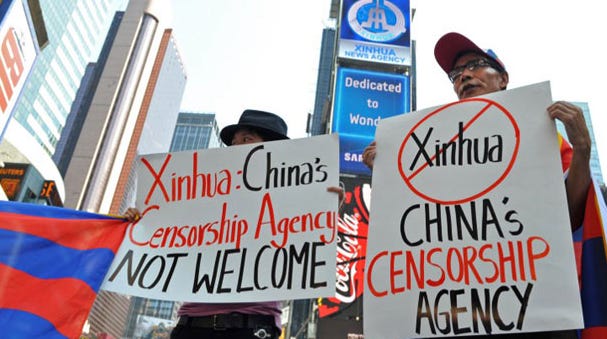
Xinhua, however, has had significant success, because it signed content sharing agreements with a lot of other countries, until they are being folded into the local media, in local languages, in many places without people really realising that the content comes from Xinhua, because most readers don't pay any attention to the by-line or tagline of where the content comes from, unless it comes from some famous columnist.
So a good example would be this. I believe, from Sam, that you have done research on this, but a lot of very prominent Thai media outlets - and Thailand as a country I know best - have signed content sharing agreements with Xinhua, including the most prominent group, the Matichon Group, which is the New York Times equivalent group. There is not a British example, because with the British press there is no 'one' outlet. I mean, I am sure Conservatives and Labour people would say there is one or whatever, but there is not really like the New York Times. Matichon Group is like the New York Times of Thailand; they produce the best political weekly, they produce the best coverage. You are supposed to think that if you pick up something produced by the Matichon Group, it is good journalism. And they have signed an agreement and increasingly use quite a lot of Xinhua copy without either labelling it as 'agencies' or often not labelling it at all. And so, Chinese propaganda essentially, because Xinhua is kind of a propaganda agency, is being filtered into quality Thai media without these readers - and Matichon is read by the elite, by everyone who's anyone in Bangkok - without them knowing it. So that would be an example of very good use of China's money.
SO: So, defenders of China would say that there are other state agencies around the world, and what is the difference between what Xinhua is doing and for example, Agence France-Presse, because surely these agencies belong to a certain country, and they are just folding in the news from their country's point of view, so it is just China trying to play the game that everyone else is playing. What would you say to that?
JK: Alright well, two things when we are talking about agencies that are not AFP, or the BBC, we are talking about the biggest news agencies, AP, Reuters, and Bloomberg; those are private entities that are not owned by the state anyway, they have complete editorial independence. But AFP, which I actually worked for, and the BBC also, have Charters of editorial independence. It was a long time ago when I worked for AFP, and I worked in Bangkok, but we would get all the news from Paris overnight, and AFP would be running stories from Paris like 'Chirac's government polling at 15%', 'Chirac surely a sure bet not to run for re-election', 'Protesters in the street demand Chirac's head'.
And the BBC runs stories that are critical of the UK all the time. Or they just run stories, they are not necessarily designed to be critical. The AFP was not going out there saying we want to get Jacques Chirac, they were just reporting that Jacques Chirac at that time was really unpopular, and people were out in the street calling for his head. I do not want to defend Martin Bashir's editorial methods but on the BBC, the BBC literally ran an interview with the Princess of Wales, in which she took down the entire royal family. Yes, the royal family is just the head of state, not the head of government, but Xinhua would never do anything like that. They would never produce anything like that, because they enjoy no editorial independence at all. To think of and idea like that on Xinhua is completely unfathomable.
SO: So, we have spoken a lot about China's influence, or lack of influence, in the normal media channels. But there are also quite a few accusations, especially in the West, and in Europe and North America, about China's penchant for disinformation. That came particularly to light in COVID, but also, I think that you have spoken, or written a lot about how disinformation has been used in a Taiwanese setting?
JK: Sure, disinformation comes less from the state media, but rather from individual actors, and the network through them spreading disinformation. In the 2020/2021 presidential election in Taiwan, there were two candidates, the incumbent from the Democratic Progressive Party, Tsai Ing-Wen, who is reviled by Beijing. She has not called for independence, but the DPP historically has been near the margins of looking for independence, and very, very hawkish in their China policy in many ways. And the candidate for the Kuomintang was Han Kuo-yu. The KMT has been historically more pro-China, shall we say?
Han rose very quickly to become the KMT's presidential candidate. He himself had some good qualities that led to that, like he was kind of a populist that was in at that time, but also, there was an enormous amount of sort of disinformation and bots-type activity, propelling his campaign as well as outlets in Taiwan, traditional media outlets, that have very, very strong links to Beijing. I do not want to say the name on a UK podcast, I would say it on an American podcast, but other UK news outlets which produce extensive reports on this major Taiwanese media company's links to Beijing and, according to this prominent British financial media outlet, how they were getting direct reports from China's Taiwanese Affairs Minister of what to cover. They were then sued for libel, and the laws of that in the UK are strikingly different than in the US.
So, they kept trying to keep ramping up both the traditional and this disinformation campaign to support their KMT candidate, but it backfired completely for three reasons. One, Taiwan actually has a pretty robust anti-disinformation armour, due to citizens being inundated with Chinese disinformation long before anyone started talking about this in Britain or whatever. They have some quality good local independent media outlets reporting on it, there is a good knowledge of it. And it also made Han Kuo-yu look like a tool of Beijing, which you do not want to look like. And then that combined with, around the same time, Beijing decided to destroy all the freedoms in Hong Kong. Tsai Ing-Wen just jumped on this, was roundly re-elected, and that is certainly not what China wanted.
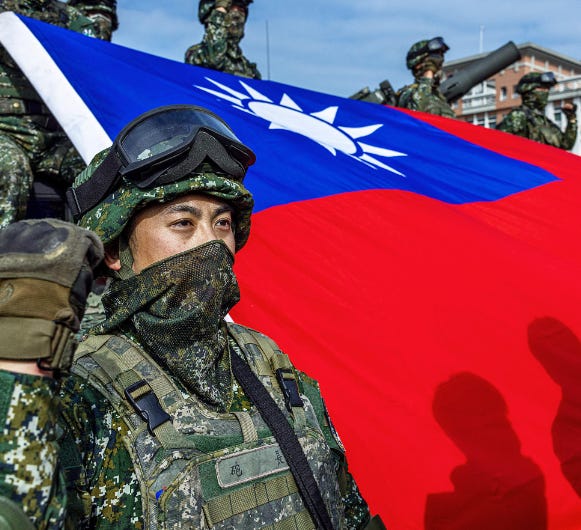
SP: So Josh, that is a great example of the disinformation campaign backfiring. But in part that is down to, as you put it, "Taiwan's robust armour". Presumably in a lot of the global south and including parts of Southeast Asia, there simply is not that kind of societal resilience to disinformation campaigns. Can you point to any areas where China has actually been successful in influencing political outcomes through disinformation?
JK: I do not think China has yet become that successful in influencing political outcomes through disinformation because their disinformation is still quite unsophisticated as compared to Russia's. Russia is very good at taking organic divides within a society, like divides in the US over class and race, or divides in France over issues related to class and race, or divides in the UK, and building on those organic actual problems and using disinformation to augment them. China has not yet done so well, they are getting better at it.
I think they had some effect probably in using disinformation, that they had some positive effects in using disinformation to help Marcos Jr. in the Philippines. There is some evidence of that, but at the same time, it is hard to tell because Marcos Jr. himself was swamping Filipinos with a fusillade of his own disinformation. So I think that the die is still out, and that actually one of the things I argue in the book is that China's disinformation tactics still lag behind Russia's, at least Russia pre-Ukraine war when they were a little bit less distracted.
SP: And so Josh, if there is a takeaway for policymakers, and let's treat them separately policymakers in the sort of developed free-leaning world, and policy makers in the developing world. If there is a takeaway from your book as to how they should be pushing back against China's global media offensive, what is it? What is the takeaway? What is the policy prescription?
JK: Well, I think they need to separate between what works and what does not right now. And that means not worrying so much about some of the big state media outlets, except Xinhua, and they need to really think about Xinhua and how Xinhua operates. And in big countries where news editors still have money, they should think twice about signing agreements with Xinhua. Major Italian and German publications and news wires have signed content sharing deals with Xinhua, is that necessary, etc?
They should spend money on digital literacy programmes, they have one at my children's school, but it is a fancy private school. I know private school does not mean the same thing in the US, but it's a private school, and everyone should have extensive digital literacy training. There are good models of it from Finland and Taiwan. Policymakers should think that China is going to adapt, that China, while a one-party state, is still adaptable, and that China's disinformation state media apparatus, its use of - we did not get to this - but trying to use its control of information pipes, like Chinese satellite TV and etc companies getting greater access to the market in developing places, is going to become a tool of spreading Chinese influence, that these are all going to get better in the future.
And fourth, we did not talk about this at all, but they need to be really strict in developed countries, very significant policies that (1) prohibit foreign interference of any type in elections; and (2) treat the media and communication sector as an area where foreign investors should be subject to the same scrutiny - and that is not just Chinese, but any foreign investors - as they would be if they invested in a sector that traditionally had security capabilities. In the past, in the US if someone wanted to invest in a chips or steel sector that could have potential ramifications that can be built into a missile or etc, that investment by a foreigner would be subject to special scrutiny. Now the US is extending that to media and communications, I believe that that Australia is too. I believe that is the wave of the future, that the UK, Europe and Canada and virtually every other developed democracy will do the same.
For developing countries, it is harder, they do not have the same amount of money. I think that one thing that developing countries should do, and that all countries should do, is simply strengthen the quality of democracy as an ability to deliver effective governance. One of the reasons why China has been able to have any success with this, and also in promoting their model, is democracy has not had a great 15 years, so at least until zero-COVID China look good by comparison. Developing countries can promote digital literacy too, there are good digital literacy programmes in some developing countries. Developing countries, while maybe not being able to not use Xinhua or others, they should strengthen their independent media, particularly developing countries that are democracies, and the big aid agencies like DFID and USAID and others, should realise that spending money on independent media in developing countries brings back massive rewards, multiple fold so that is another area.
And then finally, I think in developing countries, there needs to be a recognition - and this is true in developed countries, too - that just to think twice about, in terms of media, China offers a massive number of training programmes primarily for journalists from developing countries. There is nothing necessarily wrong with them, the US does that too, etc. But to go into that with open eyes, thinking about what you are and are not allowed to see. And while you are on the programme, they are probably not going to arrest reporters from Kenya that they have wooed to come. You know, ask, push, etc. Ask to go to places that the Chinese government does not want you to go. When you are on tours, ask questions, push, etc, etc. Ask to go to Xinjiang, I mean the worst they can say is 'no', they are not going to arrest the best reporter at Kenya's business newspaper, after they have invited him on a lavish trip to China.
SP: Josh, thanks very much indeed. And for our listeners who want to learn more about it, Joshua's book, 'Beijing's Global Media Offensive' is published and available in the UK and around the world. Joshua, thanks very much, we have got a lot to learn about how to handle China's media offensive, and thanks for coming on What China Wants.
JK: Thanks so much for having me.


